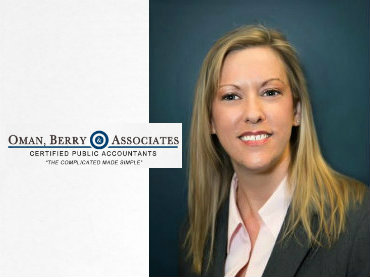- Sections :
- Crime & Public Safety
- Restaurants & Food
- Sports
- More
Categories
The Affordable Care Act and you
THE WOODLANDS, Texas -- In accordance with Affordable Care Act of 2010 (“the Act”), nearly all American will be required to have health insurance by Jan. 1, 2014 – but the details and requirements of the federally mandated program are confusing to employers and employees alike.
How the new health insurance laws affect the individual and businesses.
Recently featured on NBC with Congressman Kevin Brady, Rascon spoke to the ongoing changes in the Act, combined with partisan political posturing and media sensationalism, that has created significant confusion regarding the necessary steps that need to be taken by business owners and their employees in order to comply with the new law.
“Many people think the program has been delayed because of recent news coverage,” said Melissa Rascon, senior tax manager and executive director at Oman, Berry & Associates in The Woodlands. “The employer mandate has been extended by one year, but employees are still required to arrange for and have coverage by January 1st, 2014.”
The Affordable Health Care Act, also known as “Obamacare,” is a law designed to provide healthcare to all Americans, reducing the cost to individuals and the government. The program has sparked a bitter dispute between supporters and those in opposition and led many entrepreneurs to affiliate themselves with CPAs and tax specialists to determine their own responsibilities under the law.
“The regulations are very complex and confusing to many people,” said Rascon. “Changes continue to be made to the law that will have a direct impact on the large businesses it applies to, as well as their employees.”
She’s not alone. U.S. Rep. Kevin Brady, R-The Woodlands, who is a chairman of the health subcommittee has been a vocal opponent of the Affordable Care Act and the confusion about its implementation.
“There is a rising fear among patients, doctors and local businesses about the White House’s many missed deadlines,” said Brady. “They are anxious about knowing how Obamacare will harm them or make them pay more for healthcare. I’m demanding answers from the White House on these delays and what happens if Obamacare isn’t ready by Oct. 1.”
The October date is when state and federal healthcare options are mandated to be available for individuals through exchanges to consider for their healthcare insurance coverage that is required by Jan. 1, 2014.
For employers, the Act requires businesses with 50 or more full-time equivalent employees to provide workers with minimum essential healthcare coverage. Full-time equivalent employees is an ambiguous term that includes both full-time and part-time employees and is more defined in legislation. In addition to that, many business owners who own multiple businesses don’t really understand how the constructive ownership rules apply to them.
“An entrepreneur who owns several small shops with a limited number of employees in each shop will have to include ALL of the employees of each shop in their 50 full-time equivalent employee calculation, and therefore, may be considered a large employer that requires them to provide minimum essential healthcare coverage to all of the employees of each shop,” noted Rascon. “So for those who own multiple businesses, it can be an increasingly complicated situation.”
And tax law is not likely to become simpler in the coming years. The passage of the American Taxpayer Relief Act of 2012 earlier this year made permanent a number of temporary tax regulations that were in effect for the past decade. Entrepreneurs and business owners may find it difficult in determining how the laws impact their corporate responsibilities.
“The tax code has been getting progressively complex since 1986,” said Rascon. “Unless someone has the time and expertise to work through the system, compliance can be a problem.” Rascon said the tax code will continue to evolve in the coming months and years. And there will likely be changes put in place regarding the Affordable Care Act and other tax-related issues.
“Now is a good time to form a good working relationship with a tax professional who can help guide you through the complexities of these new regulations,” said Rascon. “There can be harsh penalties for failure to adhere to the law.”
Rascon recommends entrepreneurs and business owners consult with an accounting professional within the company or secure professional expertise from a qualified CPA firm, tax attorney or other tax professional.
“Like it or not, the Affordable Care Act is here, and it will not be going away anytime soon,” said Rascon. “It’s important for businesses to know where they stand and what is necessary to comply with the federal mandate.”
Comments •












